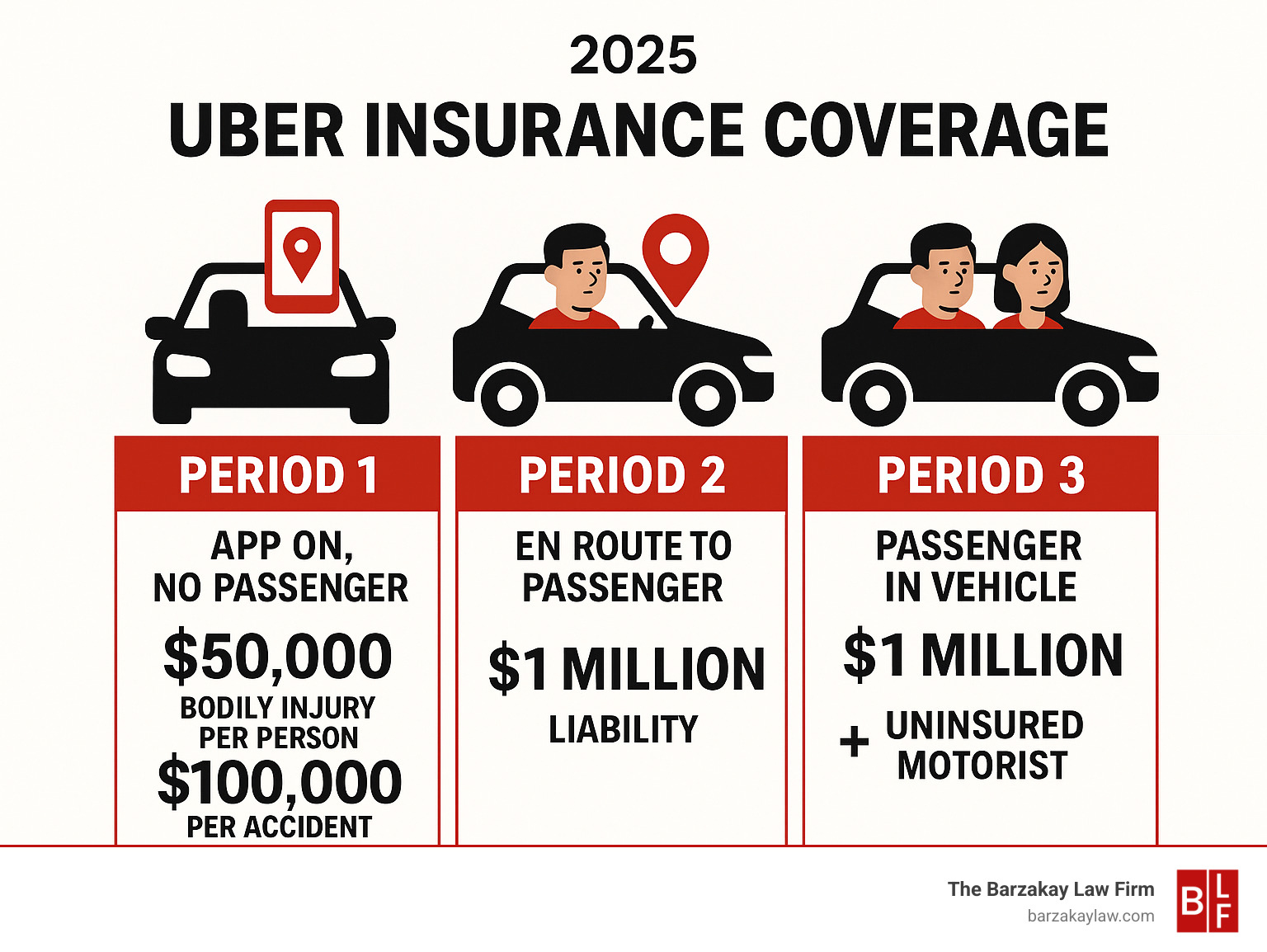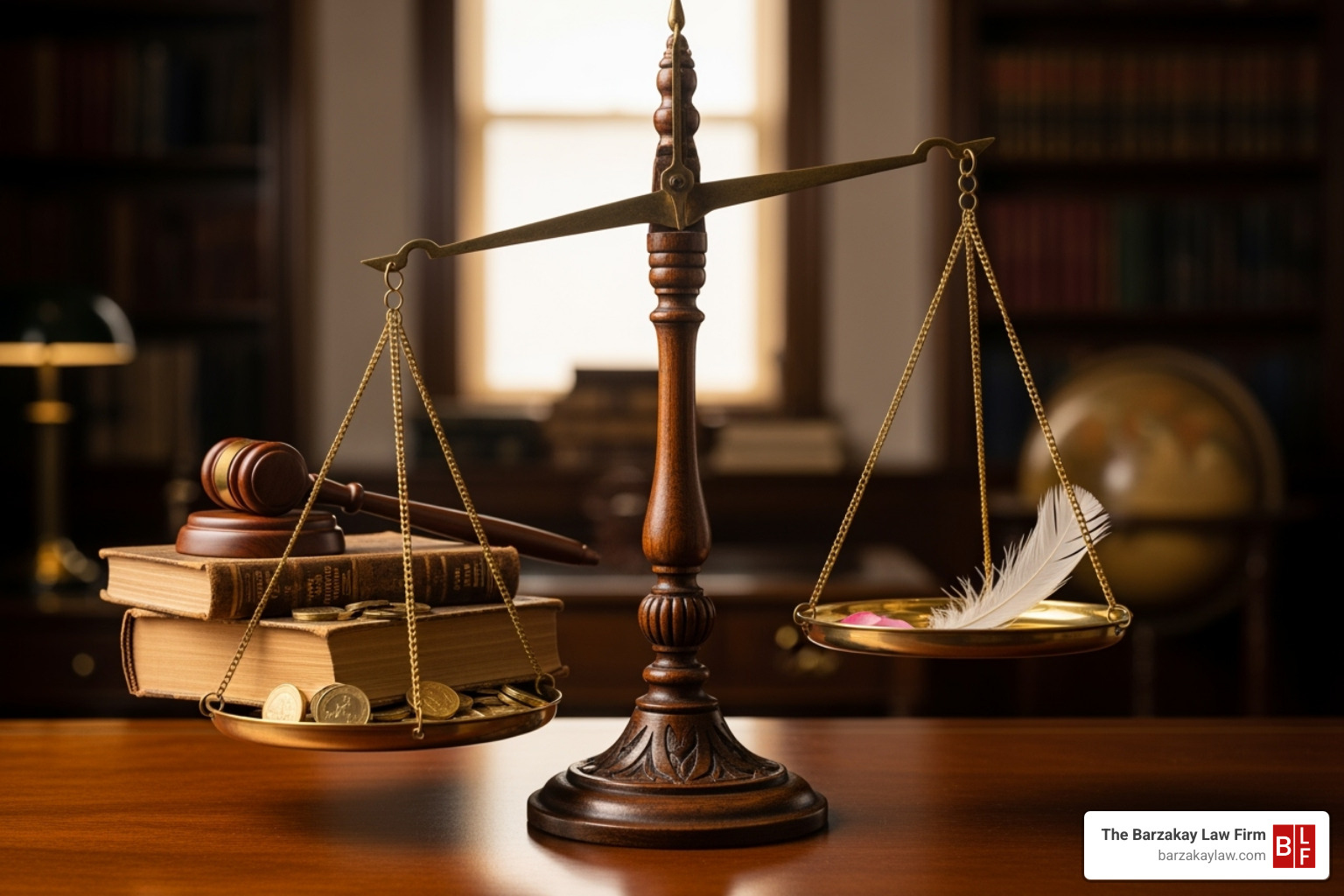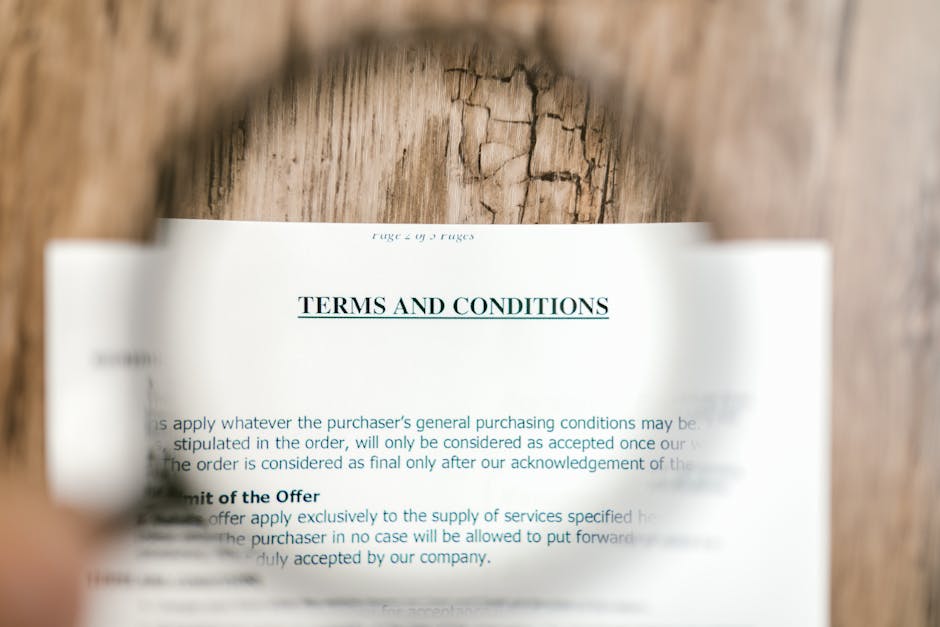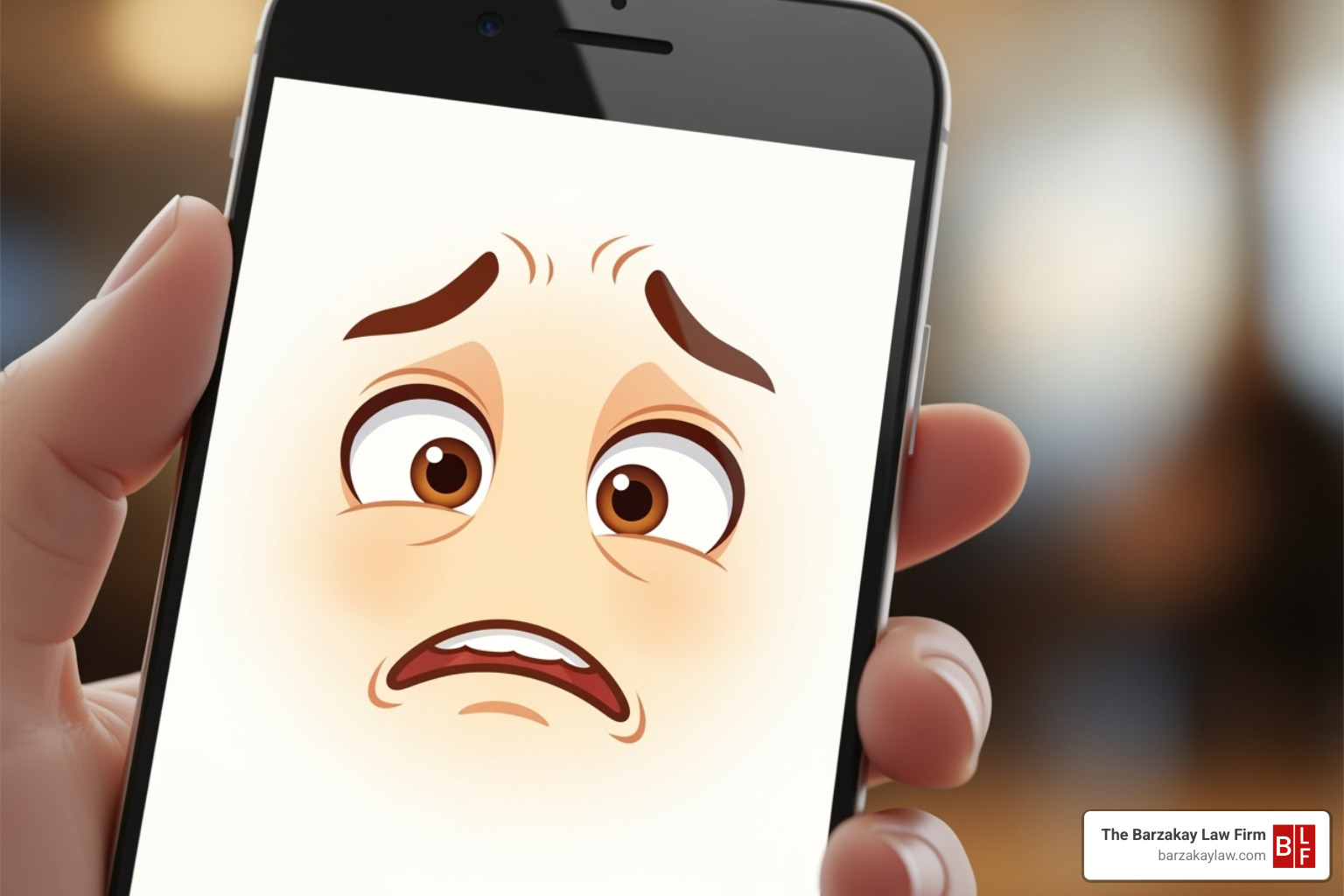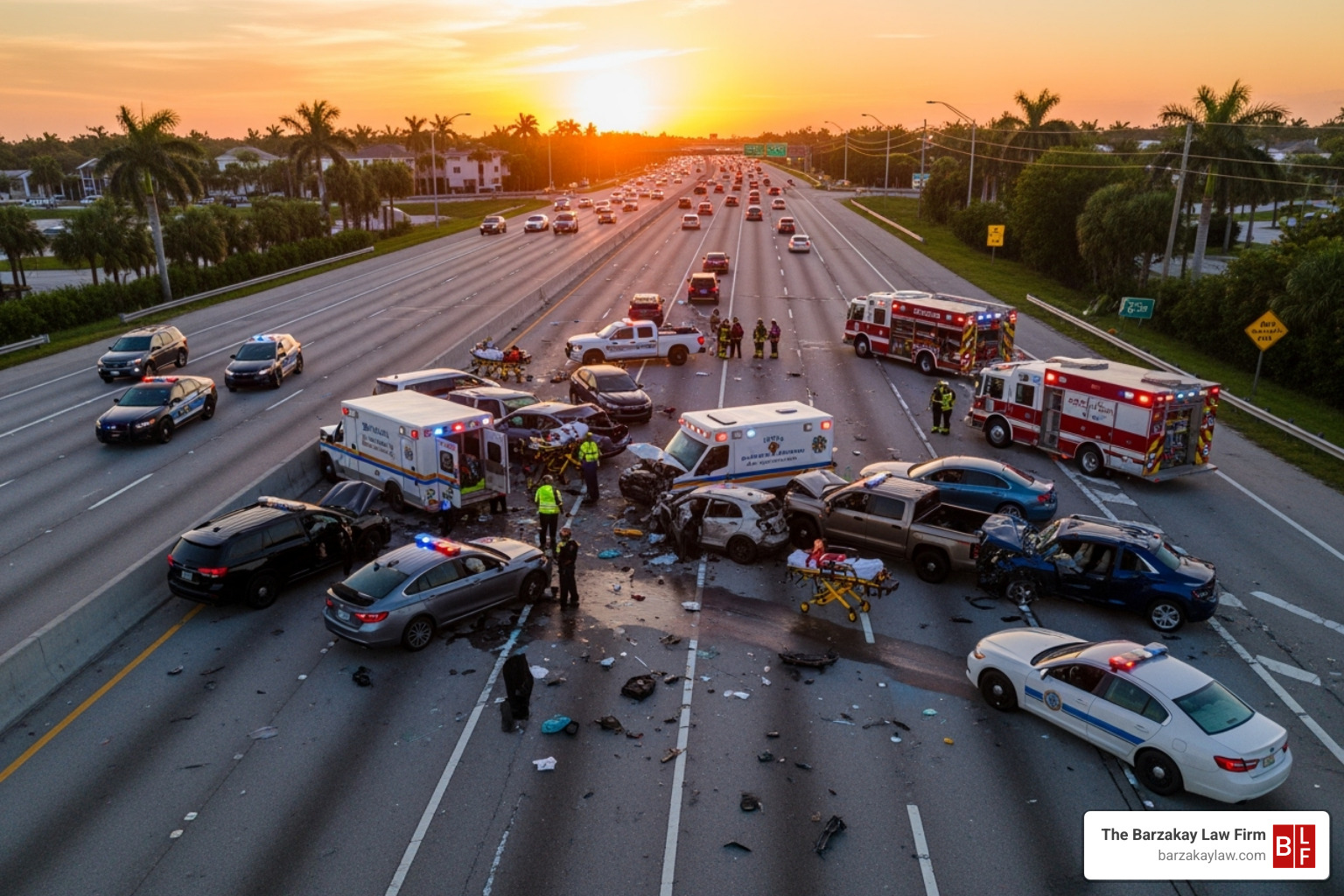When Legal Issues Meet the Gig Economy
The intersection of lawyer uber driver cases has created complex and precedent-setting legal battles. These cases range from employment classification disputes to wrongful deactivation claims, highlighting the unique challenges facing rideshare drivers and the attorneys who represent them.
Key Legal Issues for Uber Drivers:
- Employee vs. Independent Contractor Classification: Affects benefits, compensation, and company liability.
- Insurance Coverage Disputes: A three-tiered system creates gaps and conflicts.
- Wrongful Deactivation Claims: Drivers terminated without due process seek legal recourse.
- Accident Liability: Complex questions of fault with multiple insurance policies.
- Wage and Hour Violations: Disputes over unpaid expenses, minimum wage, and overtime.
The legal landscape for rideshare drivers has evolved dramatically. In California, the AB5 bill reclassified drivers as employees, granting them benefits previously unavailable. For South Florida residents in Miami, Hollywood, and Boca Raton, these legal precedents impact how rideshare accident cases are handled. The classification of drivers as independent contractors creates a liability shield for Uber, but injured parties still have legal recourse.
These cases have shaped legal strategies and highlighted the gap between company policies and driver protections.
Simple guide to lawyer uber driver terms:
The Landmark Battle for Driver Rights: Employee vs. Independent Contractor
The most significant legal fight in rideshare history centers on one question: Are Uber drivers employees or independent contractors? This classification battle shapes every lawyer uber driver case. Employees are owed benefits like health insurance and workers’ compensation; independent contractors are largely on their own.
Uber has fought to keep drivers classified as independent contractors, creating a powerful liability shield. This protects the company when its drivers cause accidents. If an Uber driver in Miami causes a crash, the injured party must first pursue the driver’s personal insurance, which may be insufficient. Uber, a multi-billion dollar company, remains shielded by this classification.
This setup also means drivers miss out on employee benefits like paid sick leave and workers’ compensation. The legal principle of vicarious liability, where employers are responsible for their employees’ actions, typically doesn’t apply. Florida gig worker laws generally follow this independent contractor model, leaving many drivers without the safety net of traditional employees.
The Legal Precedent of California’s AB5 Bill
California’s AB5 bill, passed in 2020, challenged the gig economy’s contractor model. The bill established the ABC test, a three-part standard to classify workers. To be an independent contractor, a worker must be free from company control, perform work outside the company’s main business, and operate their own independent business. Uber drivers, who provide the company’s core service, failed this test.
For a short time, California Uber drivers became employees with minimum wage protection, overtime, and health insurance. However, Uber and other gig companies funded Proposition 22, a ballot measure that created an exemption for rideshare companies, returning drivers to contractor status with limited benefits. Still, the legal challenges from AB5 set important precedents for cases filed before the change.
You can read the full AB5 Bill text for details. For local context, see more info about rideshare accidents in Hollywood to understand how these issues affect South Florida cases.
How Driver Classification Affects Liability in Florida
In Florida, the law generally treats Uber drivers as independent contractors, creating complex liability issues after an accident. When a crash occurs in Hollywood, Miami, or Boca Raton, the driver’s independent contractor status means injured parties can’t typically sue Uber directly. They must first deal with the driver’s personal insurance, which may be inadequate for serious injuries.
However, Uber is not entirely immune. Direct liability can apply if Uber was negligent in hiring a driver with a poor record or kept a dangerous driver on the platform despite complaints. Proving these claims is difficult, as Uber’s background check process is designed to counter them.
The question of company responsibility is complicated by Uber’s control over rates and ride assignments, even while it maintains drivers are independent. This legal complexity is why accident victims in South Florida need legal guidance to steer their claims for fair compensation.
For more on how these liability questions play out, see information from Lyft accident attorneys in Miami.
Navigating the Maze of Uber’s Insurance Policy After a Crash
An Uber accident in Miami can involve multiple insurance policies, creating a confusing situation. Unlike a typical crash with two personal auto policies, Uber accidents involve a layered insurance system. This includes the driver’s personal policy, the other driver’s insurance, and Uber’s corporate coverage, which varies based on the driver’s activity at the time of the crash.
Uber’s insurance is not simply “on” or “off.” It adjusts based on whether the driver is waiting for a ride, en route to a passenger, or transporting a passenger. This system is designed to protect Uber, not to simplify the claims process for injured parties. Issues involving third-party liability, uninsured motorist protection, and insurance company tactics like denied claims and low settlement offers are common in these cases.
Understanding Coverage Periods 1, 2, and 3
Uber’s insurance is divided into three periods, and knowing which one applies is critical to a claim.
Period 1: The driver has the app on but has not accepted a ride. They might be waiting for a request in a Boca Raton parking lot. Uber provides contingent coverage of $50,000 per person and $100,000 per accident for bodily injury, plus $25,000 for property damage. This coverage is secondary to the driver’s personal insurance.
Period 2: The driver has accepted a ride and is en route to a passenger. Uber’s coverage increases to $1 million in liability protection. This policy is primary, taking precedence over the driver’s personal insurance.
Period 3: The passenger is in the car. The $1 million liability policy remains in effect. Uber also adds uninsured and underinsured motorist coverage during this period, protecting occupants if the at-fault driver has little or no insurance.
The significant increase in coverage from Period 1 to Periods 2 and 3 reflects the increased risk of active driving. You can find more details on Uber’s insurance policy page.
When Personal and Rideshare Insurance Collide
A major complication arises from the “commercial use exclusion” in most personal auto policies, which denies coverage if a driver is using their car for work. This can create serious coverage gaps, especially during Period 1, when Uber’s coverage is minimal and a driver’s personal insurer may deny the claim.
This conflict often leaves drivers and passengers caught between insurance companies. Some drivers purchase rideshare endorsements for their personal policies to fill these gaps, but not all drivers are aware of this option.
Insurance companies frequently dispute which period the driver was in or which policy should apply. They are also known for making lowball settlement offers that fail to cover all damages. A lawyer handling lawyer uber driver cases understands these tactics and can fight for fair compensation.
If you are facing these issues in South Florida, you are not alone. For more on how to handle these strategies, particularly in Boca Raton, see this resource on defending against insurance company tactics.
High-Profile Cases of Wrongful Deactivation and the Role of a Lawyer for an Uber Driver
For many Uber drivers in Miami, an unexpected deactivation notice can mean an instant loss of income. Driver deactivation is a major issue in the rideshare industry, often occurring without warning or a clear explanation, and lacking traditional due process.
Common reasons for deactivation include low ratings, high cancellation rates, and passenger complaints about safety or conduct. Accident-related deactivation is also frequent, where a driver’s account is suspended during an investigation, even if they were not at fault. The burden is on the driver to prove their innocence, a process that can take weeks or months without income.
Famous Cases Involving a Lawyer for an Uber Driver and Unfair Deactivation
While individual cases are common, collective legal challenges have set important precedents. The most significant cases often involve wrongful termination claims, arguing that Uber violated its own terms of service.
Breach of contract claims can succeed if a driver shows Uber failed to follow its stated deactivation procedures. Success in these cases depends on documenting evidence, such as screenshots of ratings, communications with Uber, police reports, and witness statements.
Appealing decisions through Uber’s internal system is the first step, but it is often ineffective. This is where a lawyer uber driver can help protect a driver’s rights. Lost income claims are central to these lawsuits, as a sudden deactivation can cause significant financial hardship for families in Hollywood, Boca Raton, and across South Florida. For guidance on protecting your rights after an incident, you can consult with Miami car accident lawyers who handle rideshare cases.
Can You Sue Uber for Wrongful Deactivation in Florida?
Whether you can sue Uber in Florida depends on the circumstances. The state’s laws on independent contractor agreements present both challenges and opportunities. A major hurdle is the arbitration clause in Uber’s terms of service, which forces most disputes into private arbitration instead of court.
Florida’s at-will employment principles do not directly apply to independent contractors, but this doesn’t eliminate all potential legal recourse. A driver may have a case if the deactivation involved a breach of policy, discrimination, or retaliation. Proving damages requires clear documentation of earnings and the financial impact of the deactivation.
These cases are complex, and Uber has a significant legal team. A lawyer who understands Florida’s rideshare laws can help level the playing field. It is important to act quickly, as statutes of limitations apply.
Determining Fault and Damages in a South Florida Uber Accident
When an Uber is involved in an accident in South Florida—from Miami to Boca Raton—determining fault and damages is more complex than in a typical crash. A multi-billion-dollar corporation with layered insurance policies and legal teams is now involved, all aiming to minimize payouts.
Ridesharing presents unique accident scenarios. Uber drivers are constantly multitasking—managing the app, following GPS, and communicating with passengers—which can lead to distraction-related crashes. Florida’s modified comparative negligence rule further complicates claims. If you are found partially at fault, your compensation is reduced by your percentage of fault. For example, if you are 20% at fault for a crash causing $100,000 in damages, you can only recover $80,000. This makes having a lawyer for lawyer uber driver cases crucial to protect your claim.
Common Causes and Injuries in Rideshare Wrecks
Rideshare driving has unique risks. App-based distraction is a primary cause, as drivers must interact with their phones as part of the job. Other factors include:
- Speeding or risk-taking to complete more rides and increase earnings.
- Driver fatigue, as many drivers work long hours. Fatigue is another significant factor that can impair driving as much as alcohol.
- Navigating unfamiliar roads while relying on GPS.
Injuries from these accidents can be severe, ranging from whiplash and soft tissue injuries to life-altering traumatic brain injuries, spinal cord damage, and internal injuries. The emotional toll, including anxiety and depression, should also be considered.
Calculating Your Claim: Economic and Non-Economic Damages
Your claim should cover all past and future losses resulting from the accident.
Economic damages are tangible losses with a clear monetary value:
- Medical expenses: Ambulance rides, hospital stays, surgery, physical therapy, and medications.
- Lost wages: Income lost while recovering and compensation for reduced earning capacity if you cannot return to your previous job.
- Property damage: Repair or replacement of your vehicle and any personal items damaged.
Non-economic damages compensate for intangible losses:
- Pain and suffering: Physical pain and emotional distress caused by the accident.
- Loss of enjoyment of life: Compensation for the inability to participate in hobbies and activities you once enjoyed.
- Emotional distress: PTSD, anxiety, or depression resulting from the trauma.
In cases of extreme negligence, punitive damages may be awarded to punish the wrongdoer. Calculating these damages is complex, and insurance companies will try to minimize them. A knowledgeable lawyer for lawyer uber driver cases can help ensure you are fairly compensated. For more information, see vehicle accident lawyers for rideshare accidents.
Frequently Asked Questions about Uber Driver Legal Issues
Dealing with an Uber accident raises many questions. At The Barzakay Law Firm, we have guided many South Florida residents through these situations. Here are answers to common questions.
Can I sue Uber directly if their driver hits me in Miami?
This is complex. Uber classifies its drivers as independent contractors, not employees, to shield itself from direct responsibility for their actions. This “independent contractor defense” makes a direct lawsuit against Uber difficult.
However, you can seek compensation through Uber’s corporate insurance policy. If the accident occurred during an active trip (en route to a passenger or with a passenger in the car), Uber’s $1 million liability policy applies. Your claim is filed against their insurer, and if the insurer acts in bad faith, litigation may be necessary.
In rare cases, a direct lawsuit against Uber is possible. This may happen if you can prove negligent hiring or retention—for example, if Uber knew a driver was dangerous but allowed them to continue driving. These claims are challenging but not impossible. The most appropriate strategy depends on the specifics of your accident in Miami, Hollywood, or Boca Raton.
What are the first steps I should take after an Uber accident as a driver or passenger?
Your actions immediately after an accident are critical for your safety and any future legal claim.
- Prioritize Safety: Move to a safe location if possible and check for injuries.
- Call 911: A police report is essential evidence. Request an ambulance if anyone is injured.
- Document Everything: Use your phone to take photos of the vehicles, damage, road conditions, and traffic signs. Get contact and insurance information from all drivers and witnesses.
- Seek Medical Attention: See a doctor as soon as possible, even if you feel fine. Some serious injuries have delayed symptoms, and medical records are vital to connect your injuries to the crash.
- Report the Accident in the App: Both drivers and passengers should report the incident through the Uber app to activate the insurance process.
- Consult an Attorney: Avoid giving detailed statements to any insurance adjuster until you have spoken with a lawyer. Insurers aim to minimize payouts, and your words can be used against you.
How does Uber’s $1 million insurance policy actually work?
Uber’s $1 million policy provides substantial coverage, but its application is specific.
- When it Applies: The policy is active during Periods 2 and 3—when a driver is en route to a passenger or has a passenger in the car. It acts as the primary coverage, superseding the driver’s personal auto policy.
- What it Covers: It is a third-party liability policy, meaning it pays for injuries and property damage the Uber driver causes to others (other drivers, pedestrians, passengers).
- Additional Protection: The policy often includes uninsured/underinsured motorist coverage, which protects you if the at-fault driver has insufficient or no insurance. This is particularly valuable on South Florida roads.
- For Drivers: The policy may also offer contingent comprehensive and collision coverage for damage to the driver’s own vehicle, but it comes with a high deductible.
While $1 million is a large sum, severe injuries can quickly exhaust it. A lawyer can help maximize your recovery within these limits and identify other potential sources of compensation. At The Barzakay Law Firm, we work on a contingency fee basis, so you pay nothing unless we win your case.
Conclusion
The legal world surrounding lawyer uber driver cases is constantly changing. The core issues—from driver classification and insurance complexities to wrongful deactivation—create a difficult landscape for drivers, passengers, and accident victims to steer.
Whether a driver is an employee or an independent contractor fundamentally changes who is responsible in an accident. Uber’s three-tiered insurance system adds another layer of confusion that insurance companies can exploit. For drivers, the threat of sudden deactivation can mean a financial crisis with little recourse.
Navigating these issues without legal guidance is challenging. Insurance companies have legal teams dedicated to protecting their bottom line; you should have someone fighting for you.
At The Barzakay Law Firm, we understand the human story behind every rideshare case. Whether you are facing medical bills after a crash in Fort Lauderdale, fighting a wrongful deactivation in Sunrise, or trying to understand your options in Orlando, we are here to help.
We work on a contingency fee basis, meaning you pay no fees unless we win your case. Our goal is to secure the fair compensation you deserve so you can focus on your recovery. The legal landscape will continue to evolve, but your right to fair treatment remains. If you’ve been in a rideshare accident, understand your options. We are here to guide you through the process.

